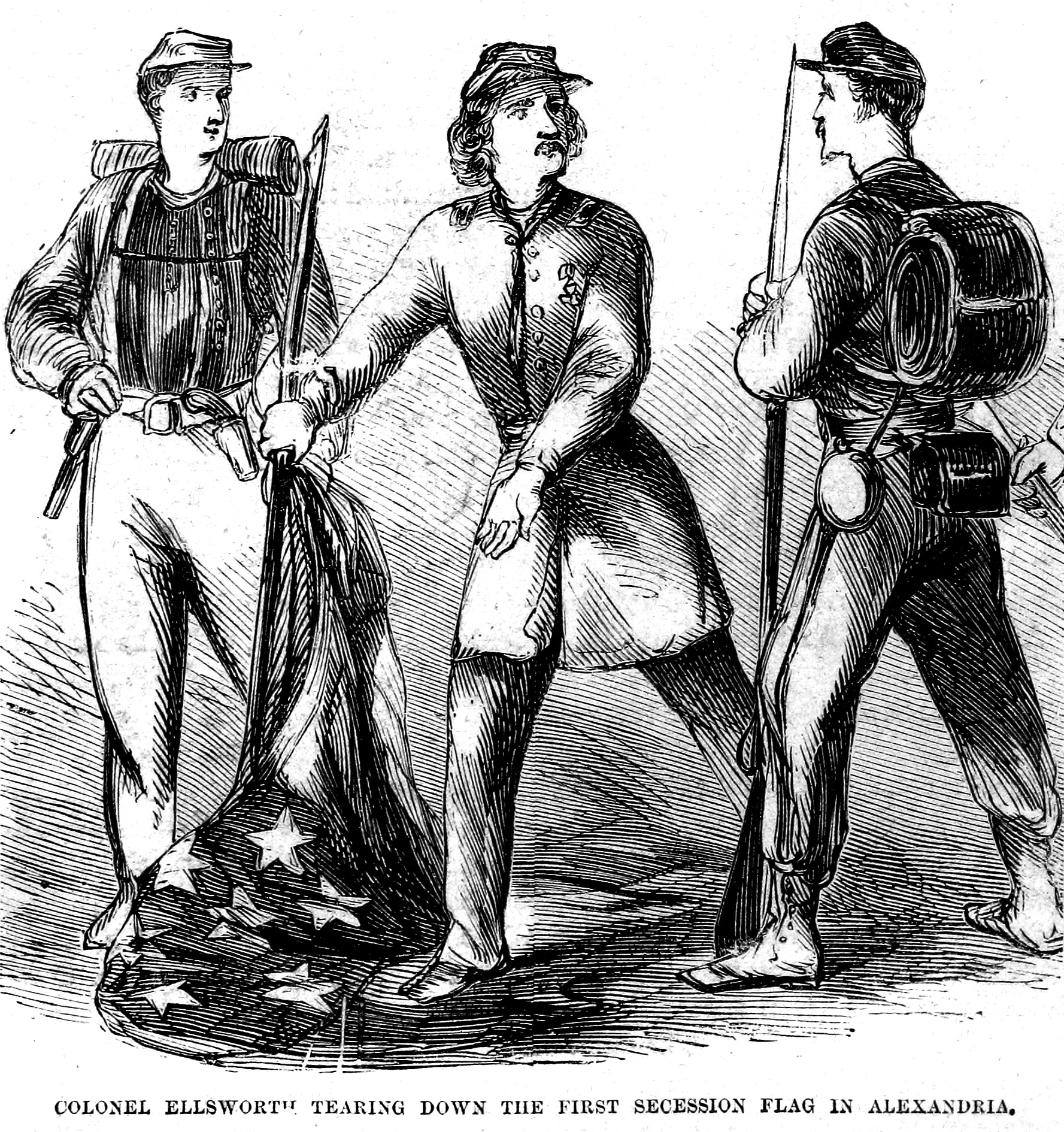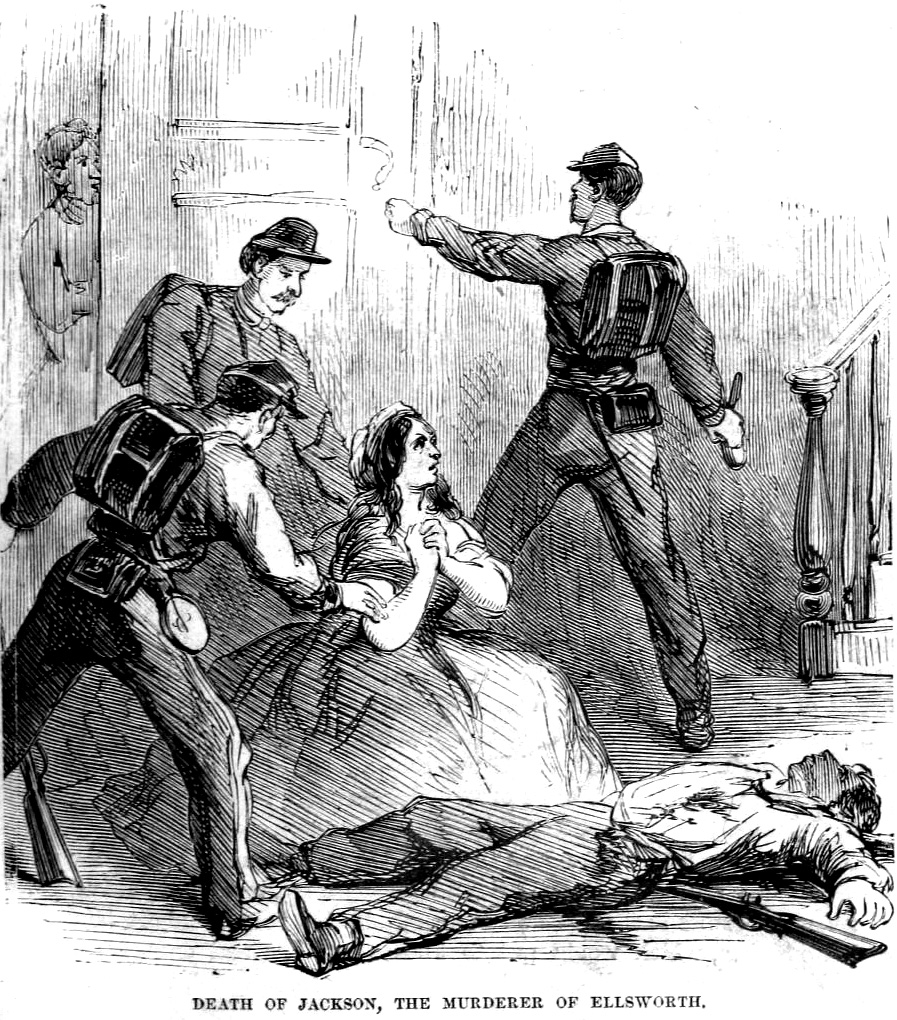The Death of Ellsworth
Leslie's Incidents of the Civil War in America, 1862 (PDF)
Source: Internet Archive
The Death of Colonel Ellsworth in Alexandria, Va. The death of the Lamented Colonel Ellsworth, the time and manner of that death the promising character of the young martyr, and the unbounded patriotism which animated his every thought and action, have furnished materials for the eulogistic themes of the poet, the philosopher, the historian and the divine. The scene portrayed in the accompanying engraving is that which occurred after Colonel Ellsworth had torn down the secession flag which floated on the Marshall House in Alexandria, Va. The story of the capture of the flag is briefly told. The 1st New York Fire Zouaves, of which Ellsworth was commander, arrived in Alexandria, Va. on the 24th of May.

Whilst taking immediate steps for stopping railway and telegraphic communication south, Colonel Ellsworth had occasion to pass through the principal street of Alexandria. He was accompanied by a single squad, with a sergeant from the first company of his regiment. On his way to the telegraph office, he noticed a secession flag floating over the Marshall House, kept by one J. W. Jackson. On reaching the Marshall House, he at once entered, and after demanding who had placed the flag there, but receiving no satisfactory reply, sprang up stairs, and reached the topmost story, whence by means of a ladder he climbed to the roof, and having obtained a knife from the military secretary of the regiment, cut down the rebellious emblem, and threw it at the feet of those who accompanied him. He did not tarry long; picking up the flag, the party next proceeded down the stairs, Private Francis E. Brownell first, Colonel Ellsworth next. As soon as he rounded a corner in the hall to descend the lower flight, a man leaped from a dark passage, and hardly noticing the private, levelled a double-barrelled gun square at the Colonel's breast. Brownell made a quick pass to turn the weapon aside, but the fellow's arm was firm, and discharged one barrel straight to its aim -- the contents lodging in the heart of the Colonel, who fell forward on his face, his blood perfectly saturating the secession flag, which he was carelessly rolling up as he descended the stairs. Quick as lightning Brownell avenged his Colonel's death, discharging his rifle in the assassin's head. Ignorant of the fatal effect of the wound which he had inflicted, he next thrust his sabre-bayonet through the assassin's body, the force of the blow sending the dead man, who proved to be Jackson, the keeper of the hotel, violently down the upper section of the second flight of stairs, at the foot of which he lay in his blood.
Then occurred a scene of agony. A woman rushed wildly from an inner room, gave one hurried glance at the body of the dead assassin,

and then cried aloud with an agony so piercing, so heartrending that no person could witness her distress without emotion. She flung her arms in the air, struck her brow madly, and seemed in every way utterly abandoned to desolation and frenzy. It was her husband who had been slain. Although maddened to despair she yet listened to what was said to her. The soldiers did all they could to soothe her wounded feelings, and made her fully sensible that the safety of her children, for whom she expressed great fears, could not possibly be endangered. Such was an opening incident of the war between the loyal men of the North and treasonable rebels of the South.